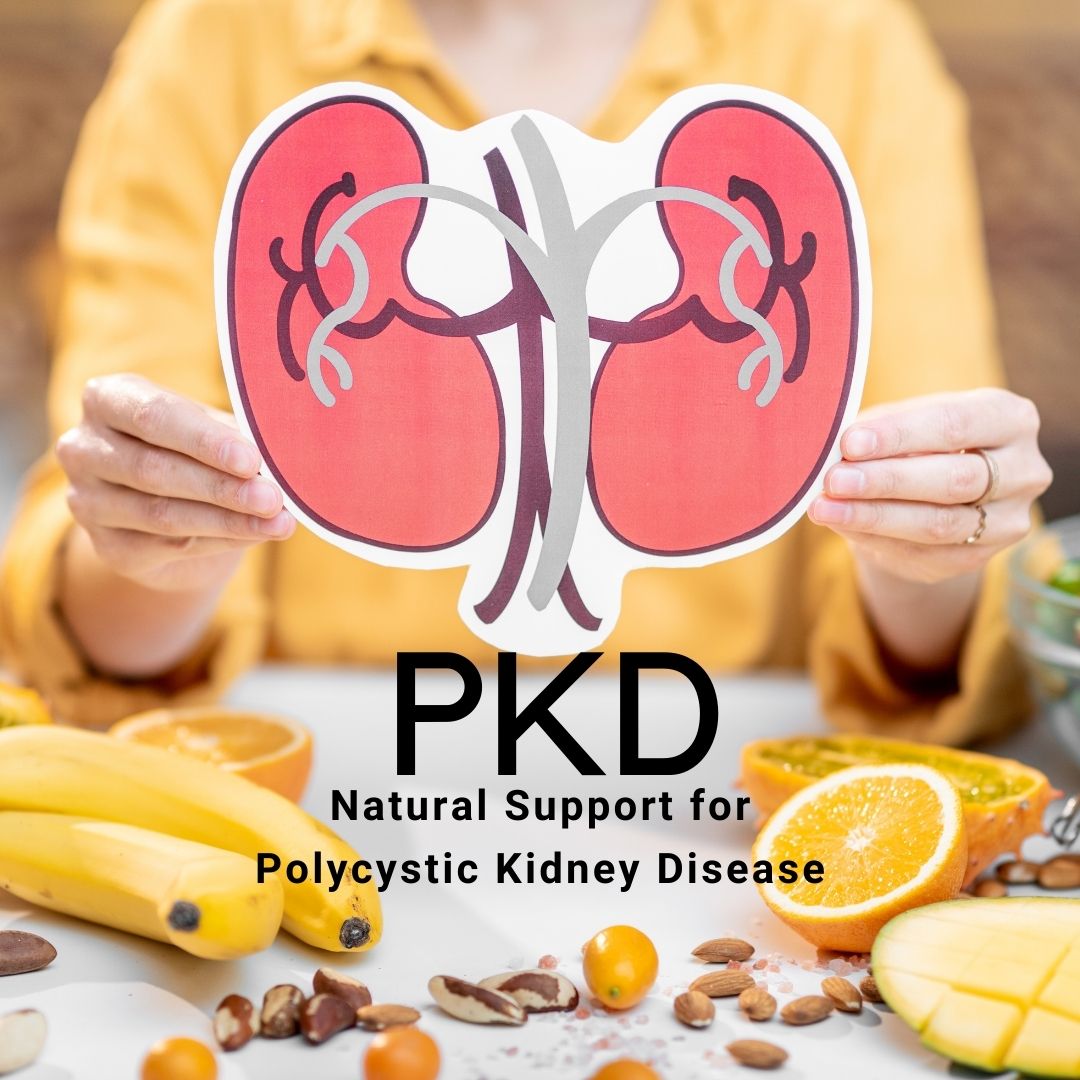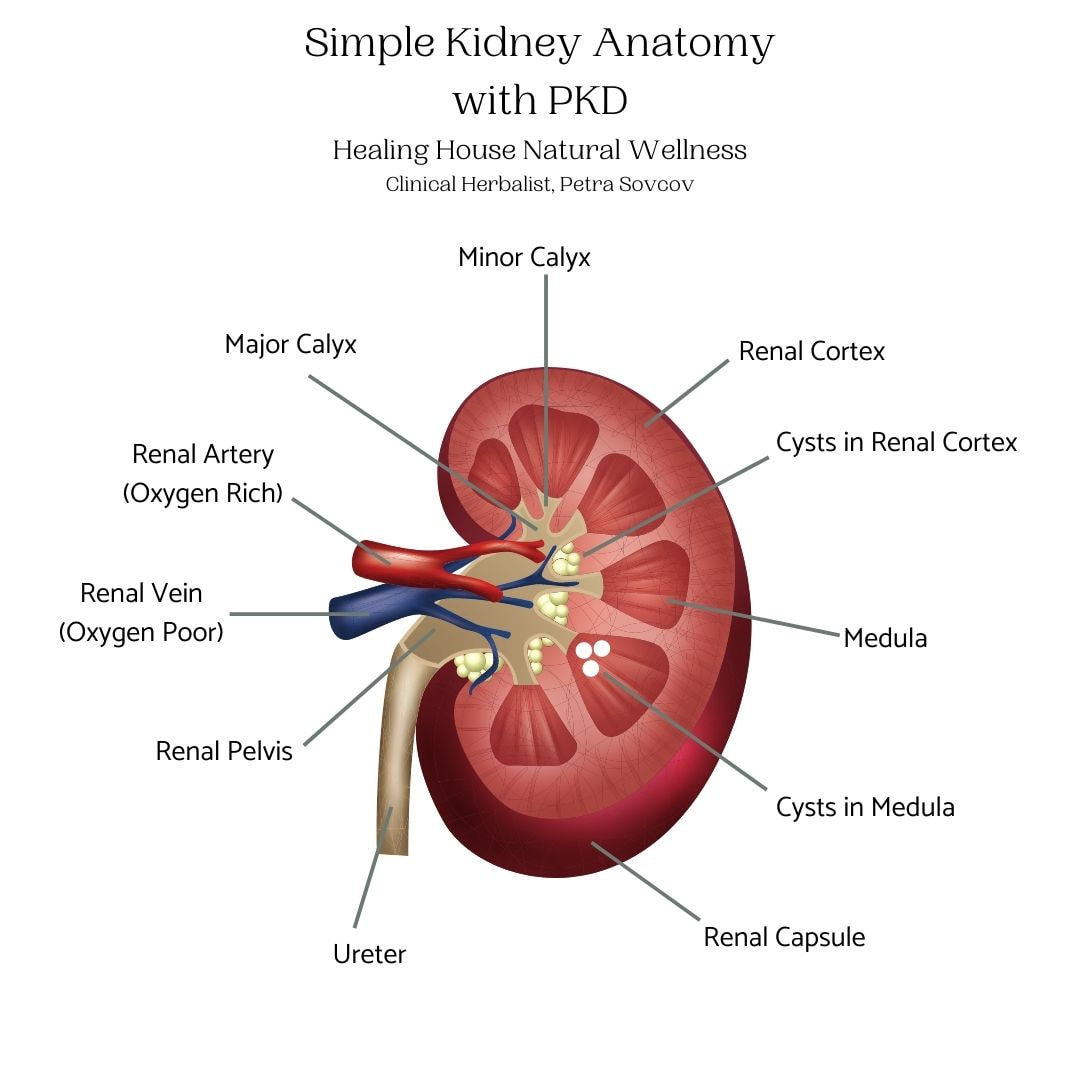|
Polycystic Kidney Disease, or PKD is “any of several hereditary disorders in which cysts form in the kidneys and other organs, eventually damaging kidney tissue and function”. PKD is considered a hereditary disorder with two types. The first is considered autosomal recessive when the disease appears in childhood, and the second is considered autosomal dominant when it appears in adulthood (commonly over the age of 30). In both cases, this systemic hereditary disorder is characterized by the formation of cysts in the cortex and medulla of both kidneys. Small cysts lined by tubular epithelium (which play an active role in renal inflammation) form and the surrounding normal kidney tissue is compressed and progressively damaged which leads to the eventual damaged/destruction of the tissue. In the case of PKD, the damaged tissue stimulates the body’s protective inflammatory response due to the renal injury, thus beginning the chronic inflammatory cycle. Individuals with early PKD are often without symptoms until later in life but generally show evidence of high or elevated blood pressure from the approx. age of 20 and onward. In adults, this hereditary disorder has a prevalence of approximately 1 in 1000 individuals. Causes: This is a hereditary genetic disorder most often passed down in families. Rarely, a genetic mutation can occur spontaneously so that neither parent has a copy of the mutated gene. Individuals with a strong positive family history of ADPKD and no cysts detected by imaging studies can undergo genetic linkage analysis for additional evaluation. When your Doctor diagnosis PKD: “A person is considered to have PKD if three or more cysts are noted in both kidneys and there is a positive family member with autosomal dominant polycystic disease (ADPKD)” – Ferri’s Atlas and Text of Clinical Medicine The diagnosis is usually based on family history, clinical and laboratory findings, and ultrasound examination. Symptoms of PKD:
Laboratory Findings in PKD:
Complications of PKD:
General Dietary and Lifestyle Suggestions for PKD:
General Supplement Suggestions for PKD: This list is not a complete supplementation list
Commonly used herbs in PDK: Always consult your Clinical/Medical Herbalist before starting new herbs, do not self-dose. This is not a complete herbal list. If you take pharmaceuticals, please consult your physician.
Again, this is by no means an inclusive list, as depending on the individual case I would no doubt use variety of far more powerful herbs. However, in my opinion these are good general usage herbs that can be paired with specifics for an individual formulation. If you have further questions, or would like to have a one on one discussion about PKD or a chronic health or wellness issue, please feel free to contact me directly at the office. In health and wellness, Petra
9 Comments
|
Petra Sovcov is not a Medical Doctor (MD) nor a Naturopath (ND), she is a Clinical Herbal Therapist (CHT) and holds a Doctorate in Natural Medicine (DNM). The suggestions or recommendations made on this site are not meant to be a substitute for advice from your MD, or as a substitute for any prescriptions you may be taking. Suggestions followed will be the responsibility of the reader, and are stated with the intention of interest and education only. If you have a health issue, please see your primary care physician (MD) first and foremost. Categories
All
Archives
July 2024
|



 RSS Feed
RSS Feed